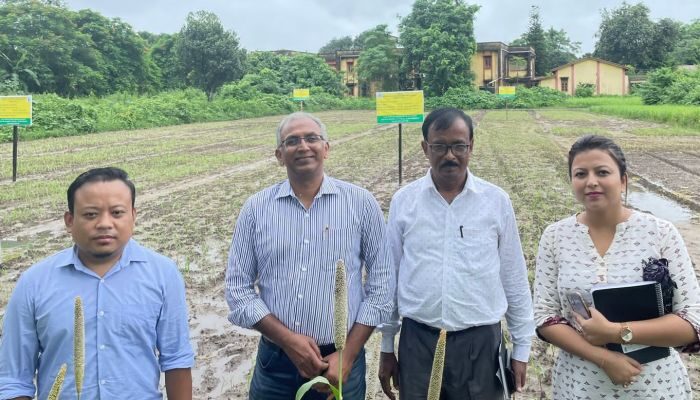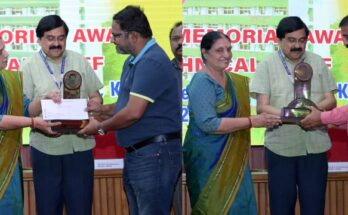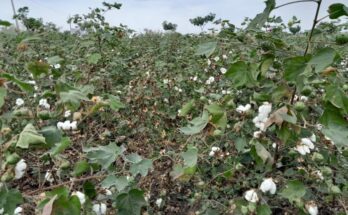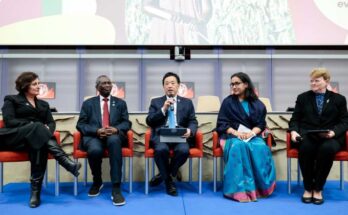The International Crop Research Institute for Semi-Arid Tropics (ICRISAT) and the Government of Assam, India, have joined forces to advance climate-resilient and nutritionally enhanced food systems through the Assam Millet Mission.
At the heart of the partnership is Assam’s goal of boosting the cultivation, production and consumption of three native millet crops: Finger millet (Maruadhan), Foxtail millet (Kaun), and Proso millet (Cheena Bajra).
Presently, millets are only cultivated in 6,000 hectares of land in 15 districts of Assam, including Nagaon, Bongaigaon, and Dhubri, contributing 97 per cent of the state’s millet production.
Given Assam’s susceptibility to floods and its historical preference for rice over millets, there’s a growing imperative to transition toward diversified agriculture that incorporates resilient and nutritious millets.
Director General of ICRISAT, Dr Jacqueline Hughes, lauded the partnership and hailed the Assam Millet Mission as pioneering, particularly considering the region’s limited history of millet consumption.
“As the world’s largest millet producer and a driving force behind the International Year of Millets – 2023 (IYoM), India stands at the forefront of the resurgence of millets,” she added.
“ICRISAT is delighted to contribute its deep expertise in millet research to complement Assam’s visionary approach and ambitious millet consumption targets,” said, Dr Hughes.
You may also like to read: President of India recognises biofortified pearl millet startup AgroZee at World Food India
The project will commence by introducing three millet types grown in Assam. It will continue along the value chain to include: empowering stakeholders through extensive training in various areas, such as farming practices, seed production, and food safety management; developing and implementing a strategic plan to promote the marketing and export of millets and millet-based products from Assam; and developing and introducing scientifically validated nutritious millet-based recipes, ready-to-eat (RTE) and ready-to-cook (RTC) food products, adapted to local taste preferences, into the PM-POSHAN scheme (mid-day meal scheme for children in government primary and upper primary schools, and Anganwadis or government-funded child and mother care development centres).
Revolutionising Millet Cultivation
ICRISAT is also collaborating with the Assam Agriculture University (AAU), private seed companies, and more than 7,000 smallholder farmers to enhance millet seed and associated production systems.
Researchers are utilising modern breeding and genetic tools to ensure seed purity and quality. They are also exploring new breeding materials suited for millet farming in Assam.
You may also like to read: Hidden costs of global agrifood systems worth at least $10 trillion, FAO study reveals
Baljeet Singh, Market Analyst at the coordinating agency of the project – the Assam Rural Infrastructure and Agricultural Services Society (ARIAS), highlighted the invaluable expertise that ICRISAT brings to the mission.
“Our partnership with ICRISAT will undoubtedly catalyse the evolution of dryland agriculture in Assam, resulting in enriched lives and thriving smallholder millet farmers,” said Singh.
Nurturing Nutrition Security
Dr Saikat Datta Mazumdar, Cluster Leader, Nutrition, Dietary Behaviour, and Smart Food at ICRISAT, highlighted the Institute’s use of innovative technologies to overcome the ‘inter-generational cycle of malnutrition’ and enhance the nutritional values of mid-day meals at schools and supplementary nutrition meals at Anganwadi centres.
You may also like to read: ICRISAT-Corteva joint research decodes pearl millet’s climate resilience and nutritional secrets
He stressed the importance of increasing awareness about the health benefits of millet and recipe preparation among mothers and Anganwadi workers in the region. He noted that these innovations will significantly benefit children and women – boosting millet consumption and food security, particularly in rural households in the state.
A Flourishing Millet Industry
The newly forged partnership reflects ICRISAT’s dedication to enhancing the millet value chain in Assam. The commitment encompasses evaluating market opportunities, formulating marketing and export strategies, and pinpointing consumer demographics and product offerings tailored to local and international markets.
Dr Victor-Afari Sefa, Global Research Program Director, Enabling Systems Transformation, ICRISAT, said, “ICRISAT brings a rich pool of multidisciplinary knowledge and expertise to elevate the millet value chain in Assam, towards offering significant nutritional benefits and laying the foundation for a more resilient future for the region.”
Assam Millet Mission (AMM) is part of the World Bank-funded Assam Agribusiness & Rural Transformation Project (APART). The Assam Rural Infrastructure and Agricultural Services (ARIAS) Society oversees the project, while ICRISAT provides technical consultancy services to support AMM under APART for approximately 18 months.





